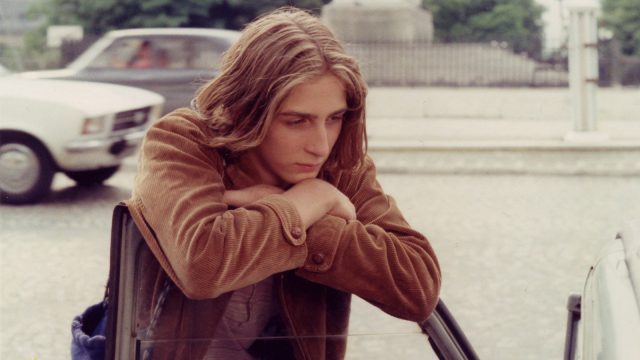Criterion Prediction #149: The Devil, Probably, by Alexander Miller
Title: The Devil, Probably aka Le Diable Probablement
Year: 1977
Director: Robert Bresson
Cast: Antoine Monnier, Tiri Irissari, Henri de Maublanc
Synopsis: Charles, a despondent student who struggles to find meaning in life, hires someone to shoot him to circumvent the possibility of committing a mortal sin. While the young man has enlisted another in the ending of his life, Charles still wanders through student activism, therapy, and his social circles.
Critique: Bresson’s second to last film, The Devil, Probably is one of the director’s angriest works to have emerged from his rich and artistically sustained oeuvre. But, Bresson’s anger is fortified and shaped into a multifaceted feature that doesn’t wallow in overt derision, his calibrated disparagement that defined his later work tunes The Devil, Probably to a frequency that is directly compelling while serving as a pessimistic critique of post-1968 youth culture. The precipitous decline of political, biological, psychological, and religious activism or the lack of change that was anticipated by the protests and general strikes that occurred in May of 1968 (ending with the Gaullist party re-emerging stronger than before) contribute to the solipsistic ennui embodied by the film’s informal “protagonist” Charlie and the restless comrades he spends his time with.
Themes of suicide, predestination, and the nature of sin are rampant in the cinema of Bresson but The Devil, Probably has a more sociopolitical urgency. Inspired by the real death of a French student who committed suicide by self-immolation, Bresson examined the late student’s actions, which served as the genesis of The Devil, Probably.
In the film’s first act, we are met with an underground demonstration and some activists editing documentary footage of oil spills, seal poaching, and all manner of pollution with some basic narration recounting the dangers these pose to our environment. From the outset we can see Bresson is more and attuned to the urban setting that, with the exception of Lancelot du Lac was the mainstay of his color features.
Being an outsider to France, this might be my low tourist interpretation but Bresson is capable of turning Paris into a maze of grey streets and storefronts. And the aimless collective gaggle of kids that wonder it takes on a tribal quality, not so much as vagabonds but transient nomadic figurines of denim, hair and shrugged shoulders. At this point Bresson’s understanding of humanity plays a pivotal role in exploring the material, he’s not ridiculing the characters but realizing with a degree of naturalism, part of which stems from his dedication to casting nonprofessional actors.
Hitchcock might have referred to actors as cattle but Bresson didn’t even trifle with actors, as he cast what he saw as “models,” templates of interiority and naturalism in a means to articulate the befuddling nature of human behavior. The Devil, Probably–though it might be tied with his following feature, L’Argent–is cast with his most memorable models. Antoine Monnier (the great-grandson of Henri Matisse) has an unforgettable screen presence; melancholic and androgynous, he leaves a memorable impression.
Why It Belongs in the Collection: Let’s face it, with a director of Bresson’s stature and his smallish body of work, it’s fair to assume that over the course of an undisclosed amount of time we should expect to see nearly all of his films in the Criterion Collection, discounting perhaps Angels of Sin. It seems like the front running contenders, aside from The Devil, Probably, would be The Trial of Joan of Arc and Four Night of a Dreamer. Recently, with restorations for Au Hasard Balthazar and last year’s release of L’Argent, it seems like we can expect more Bresson in The Criterion Collection. Also, the film has what looks like some new poster art. Could this be leaked cover art for a DVD/Blu-ray release?




























